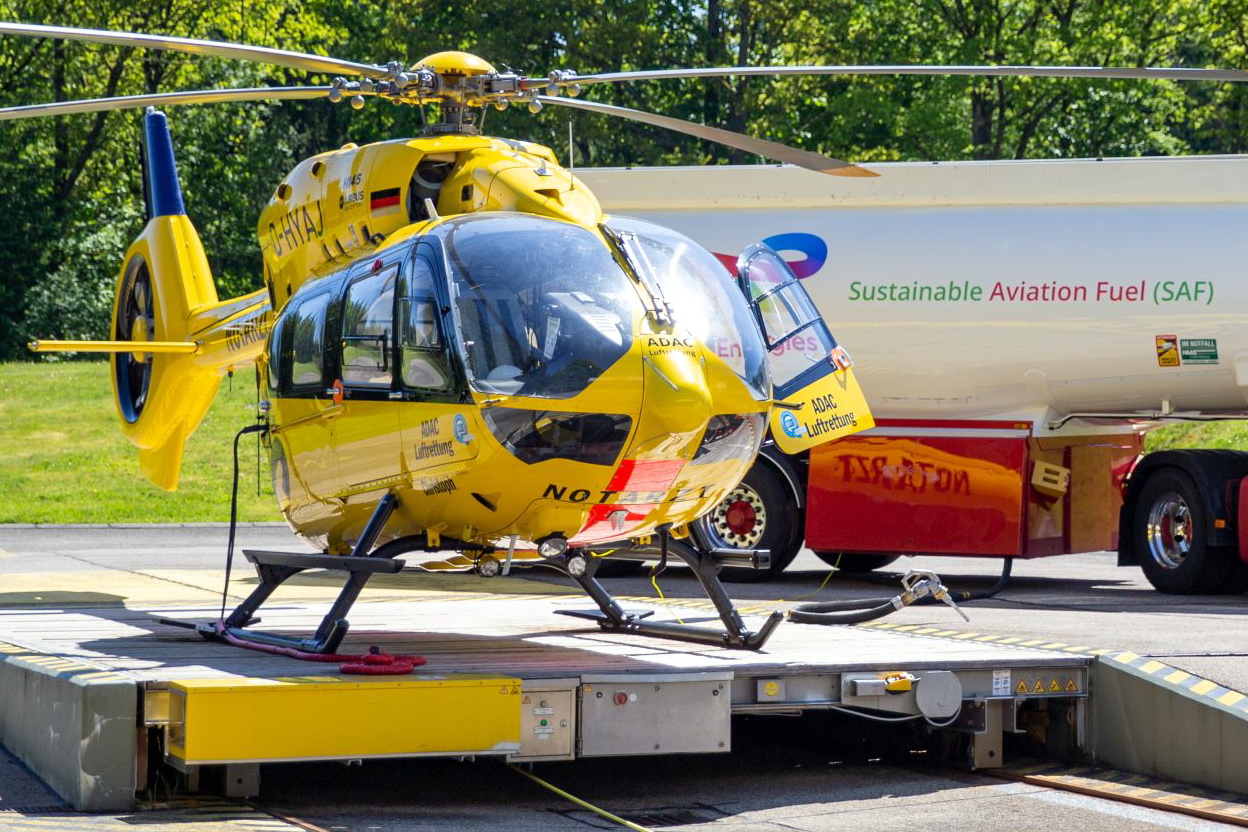|
ADAC Luftrettung, a German non-profit organization,
has flown an Airbus H145 rescue helicopter powered by sustainable
aviation fuel (SAF) for the first time.
The H145 was using a second-generation biofuel which reduces CO2
emissions up to 90% compared to its fossil equivalent, because it
is produced from residual and waste materials from the circular
economy such as used cooking oils and fats. As a result, the fuel
has no impact on agricultural food production.
The fuel used for the first rescue helicopter
flight in Munich was produced by TotalEnergies at its facility in
France from used cooking oil, without using any virgin plant-based
oil.

With this SAF, the ADAC Luftrettung fleet could achieve a 33
percent reduction in CO2 emissions, which, with more than 50,000
rescue missions and more than 3.3 million kilometers flown per
year, equates to a reduction of around 6,000 tons of CO2.
ADAC Luftrettung and engine manufacturer Safran
Helicopter Engines are
launching a project with one ADAC rescue helicopter in Cologne.
The project will study all aspects of biofuel usage on the H145,
with an operational campaign to start as early as summer 2021.
Following the biofuel premiere, the managing
directors of ADAC Luftrettung and Safran Helicopter Engines,
Fr�d�ric Bruder and Franck Saudo, signed a long-term agreement on
SAF, which envisages increasing the blending ratio of biofuel to
as much as 100 percent in the coming years and subsequently also
promoting the use of synthetic e-fuel, also known as
Power-to-Liquid (PTL), another drop-in alternative to fossil
fuels.
PTL refers to the generation of liquid fuels produced using
electrical energy from renewable sources, which, along with the
use of biofuel, will allow aviation to get closer to
climate-neutral aviation.
Biofuel is currently certified and approved for
aviation use in a maximum blend of 50 percent with conventional
kerosene of the JET-A1 type. The ADAC rescue helicopter was flown
on a 40 percent blend.
Fr�d�ric Bruder,
Managing Director of ADAC Luftrettung, said, �We want to be a
pioneer in reducing CO2 in emergency medical services with
environmentally friendly kerosene. This means we must also develop
air rescue technologically so that the use of SAF is future-proof
in the longer term. To achieve this, we have strong partners at
our side. Importantly, SAF is an
officially approved fuel, which means that flight and patient
safety remain at the highest level.�
See latest
Travel Industry News,
Video
Interviews,
Podcasts
and other
news regarding:
COVID19,
Airbus,
Helicopters,
SAR,
H145,
SAF,
Sustainable Aviation.
|
Headlines: |
|
|
